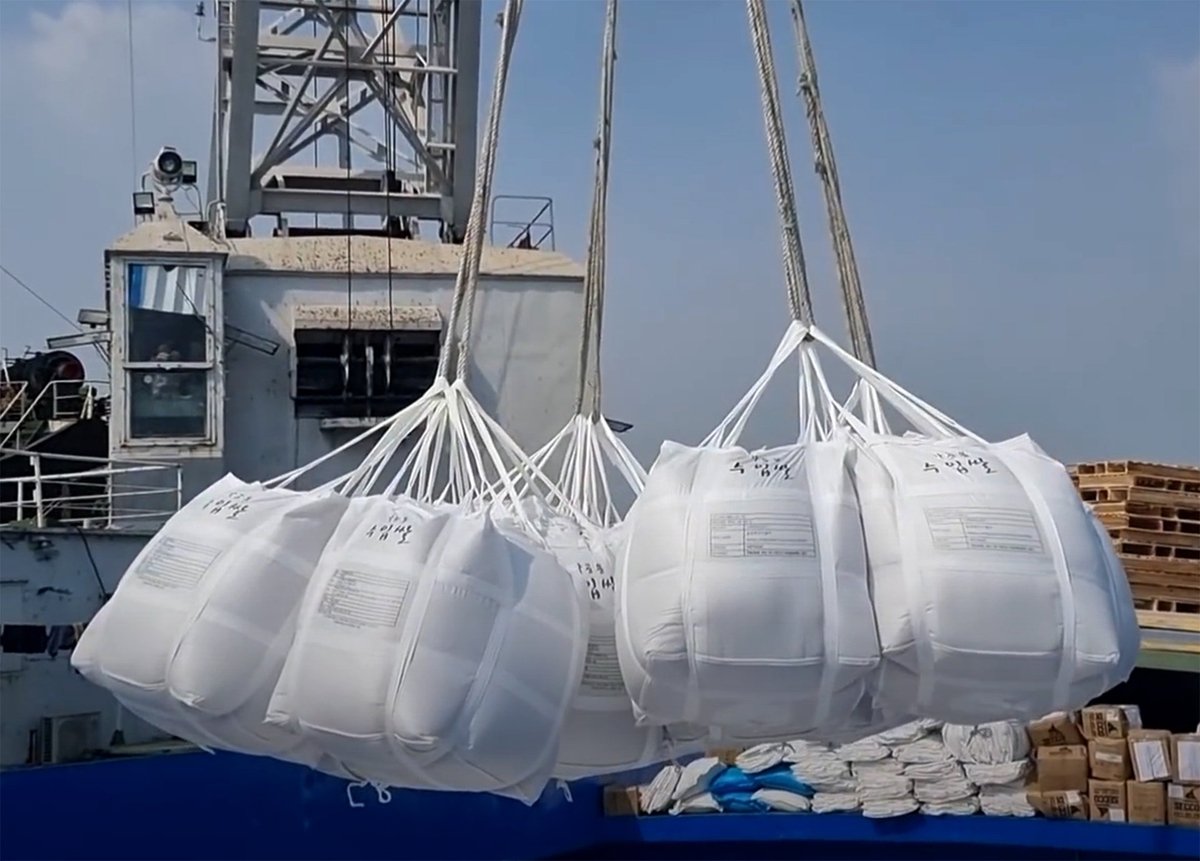December 31, 2025 | 04:16 GMT +7
December 31, 2025 | 04:16 GMT +7
Hotline: 0913.378.918
December 31, 2025 | 04:16 GMT +7
Hotline: 0913.378.918
According to Vietnam Customs, since the Philippines halted rice imports on September 1, 2025, Viet Nam’s rice exports have dropped significantly. In September, export volume reached 467,000 tons, almost half that of August and nearly 50% lower than in September 2024.

In the first half of October, rice exports totaled 201,000 tons, a sharp decline from 379,000 tons in the same period last year. Photo: Thanh Son.
Despite the Philippines’ suspension, information from Do Ha Nam, Chairman of the Viet Nam Food Association (VFA), shows that Viet Nam has still managed to maintain a monthly export volume of nearly 500,000 tons. This demonstrates the strong efforts of businesses to expand into alternative markets.
One of the markets where Vietnamese exporters have been actively promoting rice sales this year is China. From the beginning of the year, rice exports to China have surged several times compared to the same period in 2024. Particularly in the first nine months of this year, exports to China reached 600,000 tons, compared to just 241,000 tons in the same period last year.
The African market is also increasing its demand for Vietnamese rice. In previous years, Africa typically imported Vietnamese rice only in the second and third quarters. But this year, purchases began earlier and have continued into the fourth quarter. This shows that Vietnamese rice is gaining greater popularity among African importers and consumers. The main challenge in trading with Africa lies in payment delays, as importers often take time to settle transactions.
Viet Nam’s rice can further expand into other markets, with Japan being a prime example. Given Japan’s currently high rice prices, even with import tariffs reaching up to 400%, Vietnamese rice can still compete effectively. However, to penetrate the Japanese market, farmers and exporters must overcome stringent technical and safety standards in production.
Besides the efforts of enterprises to search for markets and diversify export routes, VFA Chairman Do Ha Nam emphasizes the crucial role of government initiatives in expanding Viet Nam’s export markets, such as trade negotiations and the signing of memoranda of understanding (MOUs) with major rice-importing countries. These agreements help mitigate risks when unfavorable fluctuations occur in traditional markets.
In July this year, during National Assembly Chairman Tran Thanh Man’s official visit to Senegal, Viet Nam and Senegal signed an MOU on rice trade. As per the agreement, depending on production and market conditions, as well as international prices at the time of transaction, Vietnam will push the export of 100,000 tons of rice to Senegal annually.
Following the Philippines’ rice import halt, shifting focus to alternative markets is currently the top strategy for rice exporters. Among the major markets that could help ease the pressure from the Philippines, the African market stands out as the most promising.
Since the beginning of the year, rice exports to Africa have grown strongly, with many markets posting double- or triple-digit growth rates. For example, in the first eight months of the year, exports to Ghana reached 662,000 tons and were worth USD 373 million, up 95% in volume and 59% in value in comparison to the same period last year. In the case of Côte d’Ivoire, rice exports totaled 754,000 tons and were worth USD 349 million, representing a 156% increase in volume and a 96% increase in value.
In the first eight months of the year, alongside exports to the Philippines, Vietnamese enterprises have already shown a significant focus on supplying rice to Africa due to its high demand. Therefore, after the Philippines’ suspension, Vietnamese exporters have been relying even more on the African market. The biggest challenge now is the rising cost of storage, as businesses face large inventories amid falling export volumes.
Although official figures on total stored rice are not yet available, with the Philippines extending its suspension, businesses that accumulated rice reserves are now facing mounting costs by the day. Another major difficulty facing rice exporters is the delay in value-added tax (VAT) refunds. Toward the end of the year, in order to fully purchase rice from farmers, businesses will need an estimated VND 2 trillion (approximately USD 80 million). If VAT refunds continue to be delayed, even leading companies in the food industry will face severe financial strain as they are still rushing to buy and consume all the rice for farmers while shouldering additional storage costs.
Translated by Samuel Pham
/2025/12/29/0829-2-000508_274.jpg)
(VAN) Hai Phong is tightening management, with 100% of fishing vessels licensed and equipped with vessel monitoring systems, joining the national effort to lift the EC's 'yellow card.'
/2025/12/27/2744-1-121716_241.jpg)
(VAN) The Viet Nam Environment Protection Fund is the national environment protection fund and a state financial institution under the Ministry of Agriculture and Environment.
/2025/12/27/2015-2-111213_813.jpg)
(VAN) In efforts to realize the goal of Net Zero emissions, reducing urban emissions is regarded as a key solution.

(VAN) Deputy Prime Minister Tran Hong Ha requested to design the EPR mechanism toward a circular economy that is transparent, feasible, and non-administrative and aligned with actual recycling capacity.

(VAN) On December 24, Deputy Prime Minister Tran Hong Ha chaired a meeting about approving greenhouse gas emission quotas for 2025 - 2026 period.

(VAN) As Viet Nam enters a new era, the national agricultural sector must proactively adapt to global trends to transform current challenges into strategic development opportunities.
/2025/12/18/5046-3-154320_307.jpg)
(VAN) Granting planting area codes is a solution that helps Lao Cai manage forests effectively while also laying a data foundation to support the development of the carbon credit market in the future.